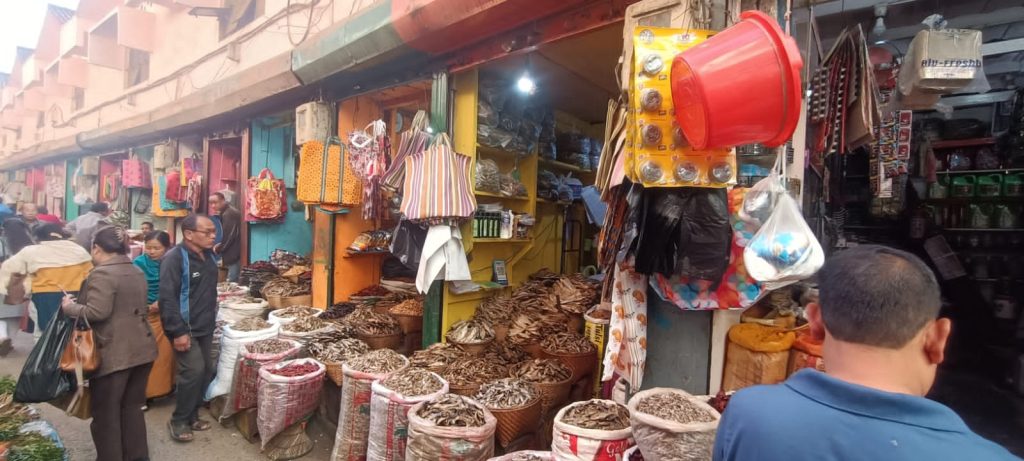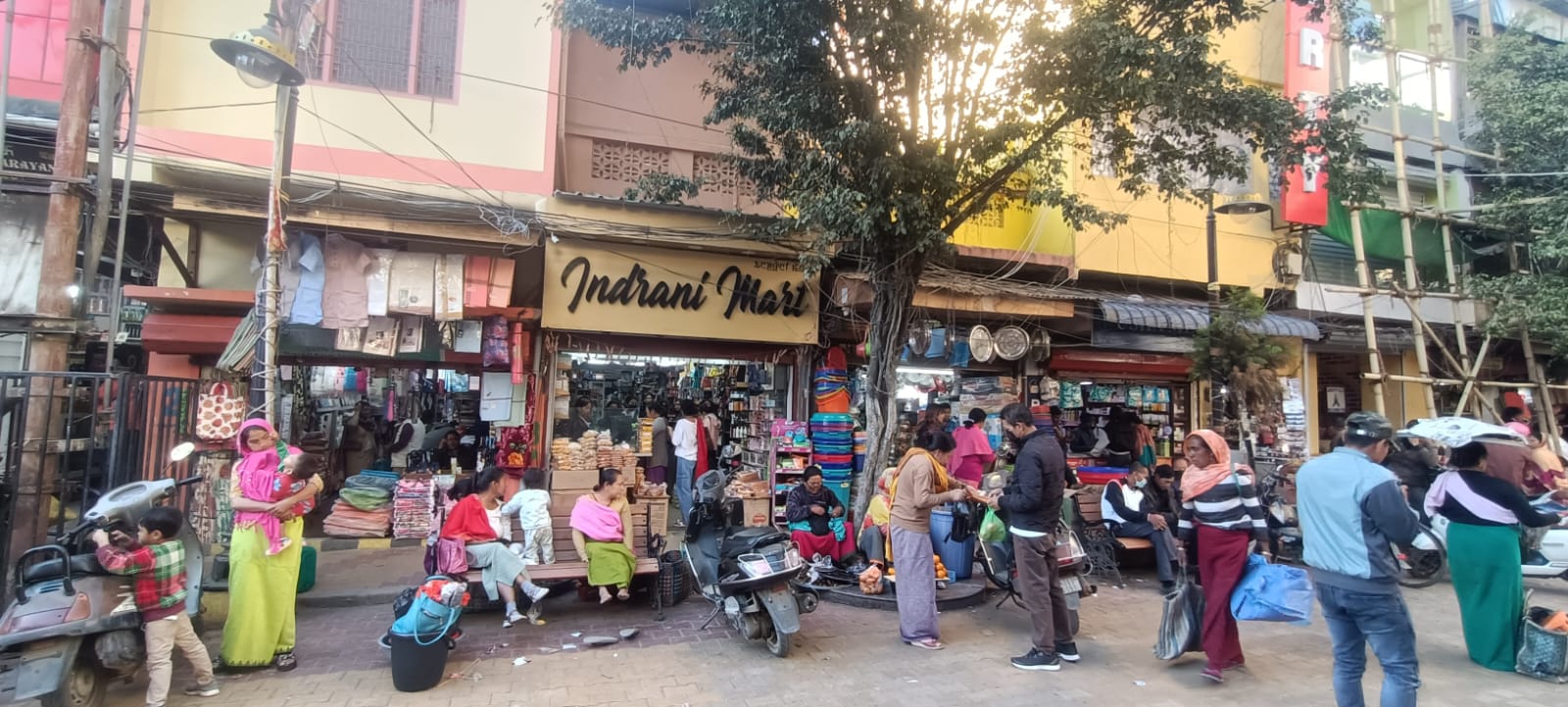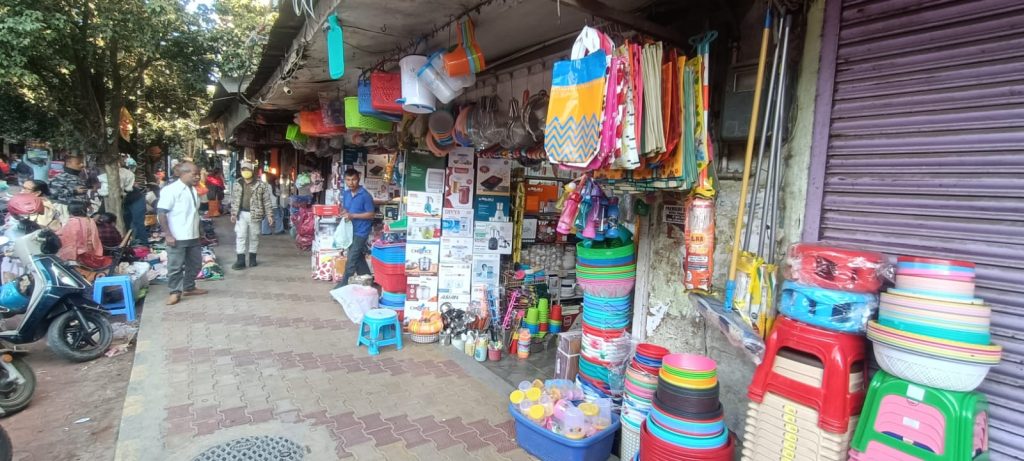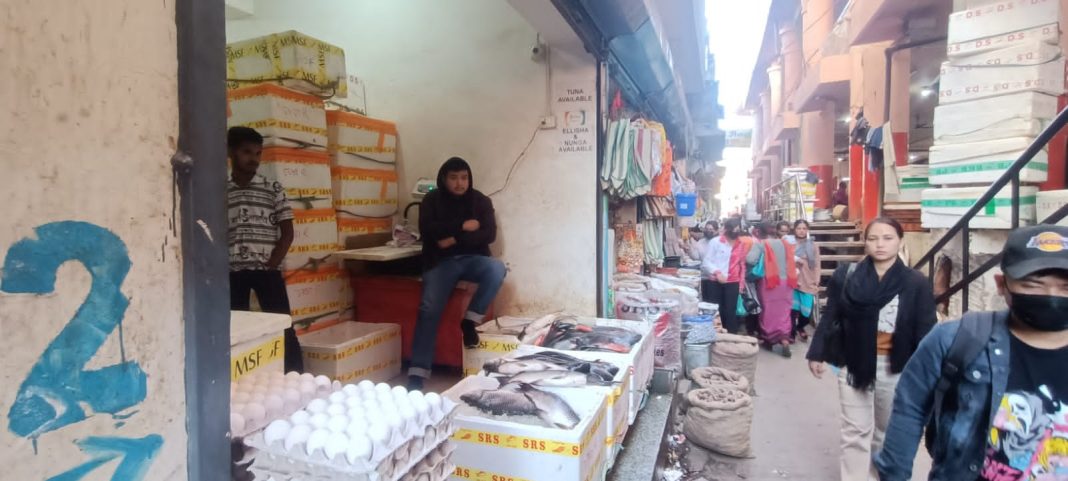Imphal Jan 7 (Waari Singbul Network): Even as the New Year begins, the cycle of violence that sparked off in May last year continues unabated profoundly impacting the state’s economy. The conflict between the Kuki-Zo and the Meiteis has led to the most extensive human displacement and devastating loss of property and lives in Manipur’s contemporary history.
In November 2023, Manipur’s economy experienced a staggering retail inflation rate of 11.63 percent, far surpassing the national average of 5.55 percent, as reported by the Central Statistical Office (CSO) of the Indian government.
In other words, due to the persistent blockade on the crucial lifelines—National Highways 2 and 37—orchestrated by Kuki-Zo civil bodies, the people of Manipur are compelled to pay twice the price for essential commodities compared to the rest of the country.

While the cycle of violence approaches nine months, it’s the ordinary people who bear the brunt of escalating living expenses. Those in the unorganized sector—such as manual labourers, street vendors, private transporters, construction workers, artisans, performance artists, agricultural labourers, and small-scale traders—are among the worst affected by these circumstances.
Economist Elangbam Bijoykumar Singh highlighted that based on the Periodic Labour Force Survey conducted by the National Sample Survey Organisation (NSSO) to gauge unemployment, Manipur consistently held an unemployment rate higher than the national average even before the eruption of violence.
The survey findings indicate a stark 19.7 percent unemployment rate among Manipur’s youth aged between 15 and 29 years, as per the 2022-23 PLFS survey. This rate notably surpasses the all-India average of 10 percent, underscoring a concerning disparity in employment opportunities for the younger demographic in the state.

Bijoykumar pointed out, “While precise data isn’t currently available, there’s a distinct indication that the violence likely contributed to an increase in the state’s unemployment rate. The substantial displacement of approximately 60,000 individuals has resulted in many losing their jobs, further exacerbating the employment crisis.”
He expressed confidence that once the crisis subsides, the inflation rate will naturally decrease. “Even before this ongoing crisis emerged, we’ve witnessed economic blockades on National Highways due to protests by hill-based organizations lasting for months. Historically, when these agitations conclude, the inflation rate tends to decrease,” Bijoykumar stated, highlighting past patterns as evidence.
The economist emphasized that the crisis has notably impacted rural areas, causing a substantial setback to the rural economy. “Both the populace and the government need to derive lessons from this crisis. We ought to adopt scientific methods in our agricultural practices to enable multiple cropping and higher yields. Encouraging proper land use through economic support and incentives should be a priority,” he stressed, underlining the importance of implementing these strategies for agricultural enhancement.
Moreh town in Manipur, presently simmering with conflict, stands as a pivotal economic hub along the Indo-Myanmar border. It’s widely acknowledged as the gateway to Southeast Asia. Prime Minister Narendra Modi, during his speech on Manipur’s 50th Statehood Day in 2022, emphasized the significant role of Manipur in advancing the North East as the center of the Act East Policy.

Irom Rajendra Singh, an international trader based in the border town of Moreh has two decades of trading experience. He pointed out that the border town is one of the most important trading hubs of Manipur.
It won’t be an overstatement if it is to be stated that Moreh is the third lifeline of Manipur, directly or indirectly sustaining half of the population. This border town holds the potential to transform people’s lives,” Rajendra emphasized, underscoring the town’s significant impact. He is one of the few local traders holding import-export licenses.
Rajendra, who is also an executive member of the Border Trade Chamber of Commerce in Moreh, further clarified that the town operates without a notion of permanent trade, predominantly thriving on informal trade practices.
“Ninety percent of the traders here are small-scale, lacking significant capital for investment. However, I must say, this town is akin to a promised land. I’ve witnessed elderly individuals arrive in Moreh with meagre funds, striving to sustain themselves. Whoever ventures here doesn’t leave empty-handed,” he remarked, highlighting the town’s potential for providing opportunities to those who seek them.

RK Noren, operating a shop at Imphal West Singjamei market, deals in bedding items sourced from across the border in Myanmar. He stands as one of the severely affected businessmen in Imphal due to the ongoing circumstances.
“It’s been almost 9 months since the violence broke out and there isn’t any sign of ending. Our business transaction normally increases during winter, ‘Moreh Blankets’ in particular, are always in high demand. But this season we are running out of stock. We don’t know how to continue our business”, said a visibly dejected Noren.
“Our family shares a deep emotional bond with the shop we run today. It was our late mother who laid the foundation for this business back in 1991. During those times, she used to travel to the border town to procure goods. Today, things have changed drastically; you can simply order goods by phone,” Noren added, reflecting on the personal history and evolution of their family business.

The 42-year-old trader longs for normalcy to return to Manipur, wishing for a peaceful life for everyone. He stands among hundreds of traders and thousands of unorganized sector workers, all hopeful and keeping their fingers crossed for a positive change.
In the midst of turmoil and uncertainty, the aspirations of countless individuals in Manipur echo a singular desire: the swift return of normalcy. From traders like Noren, whose familial roots intertwine with their businesses, to the multitude in unorganized sectors, there’s a shared hope for peace and stability. As their stories interlace with the broader narrative of Manipur’s challenges, their collective yearning for a tranquil and prosperous future remains steadfast. The path to recovery and progress lies not just in economic revitalization but also in the restoration of a peaceful, harmonious society for all its inhabitants.
Also Read: Assam: After electric buses, E-bike services launched in Guwahati
Also Watch





